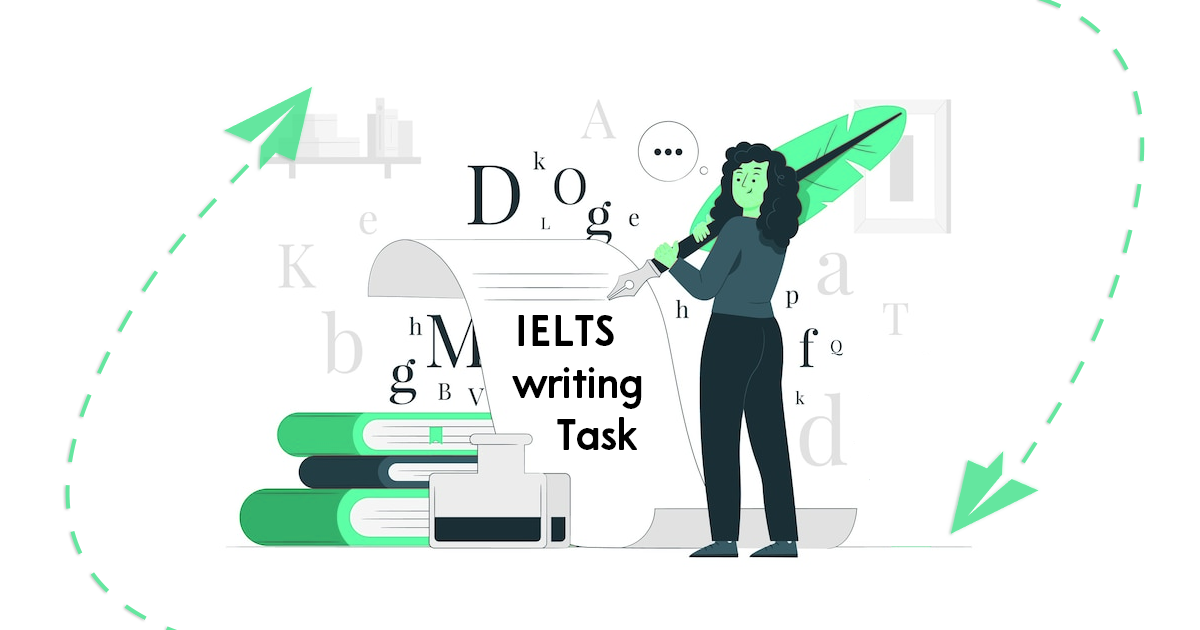#ieltswriting #eduvoyagerjaipur
Ace Your IELTS Writing Test: Tips and Strategies
Table of contents
• Introduction • Understanding IELTS Writing Test • IELTS Writing Task 1 Writing about Vocabulary and grammar tips
Introduction
Are you freaking out about your IELTS Writing test? Don't worry, we've got you covered! In this blog, we will arm you with tips and strategies for acing the exam. So, chill out, grab a cup of coffee, and let's get started!
Understanding the IELTS Writing Test
Introduction: If you're planning to take the IELTS Writing Test, then you know it's no joke. The pressure can be overwhelming, especially if you're a beginner. But don’t worry, we've got your back. In this blog post, we’ll provide you with all the essential tips and strategies to ace your IELTS Writing Test. Understanding the IELTS Writing Test: The IELTS Writing Test consists of two tasks. Task 1 requires you to describe the given data in a report format, whereas Task 2 requires you to write an essay on a given topic. Format of the test: You'll have 60 minutes to complete both tasks, and you'll write your answers on an answer sheet. Your answers will be evaluated based on four criteria-Task Response, Coherence and Cohesion, Lexical Resource, and Grammatical Range and Accuracy. Task 1 and Task 2: In Task 1, you’ll be presented with a data set in the form of a graph, chart, or table. You'll have to summarise and explain the given data in your own words. In Task 2, you’ll be given a topic, and you need to develop and support your argument based on that topic. Assessment criteria: To get a high score in the IELTS Writing Test, make sure you answer the questions completely and accurately, organise your ideas coherently, use an extensive range of vocabulary and grammar structures, and write with clarity and coherence. So, what are you waiting for? Go ahead, follow our tips and strategies, and ace your IELTS Writing Test!
IELTS Writing Task 1 each with a clear and concise topic sentence. Support your ideas with relevant details and examples. Use linking words and transition phrases to show the relationship between sentences and paragraphs. Finally, use a range of vocabulary and avoid repetitive phrases to elevate your writing. Grammatical accuracy is crucial, so ensure you've practiced as much as possible. Keep in mind the word limit while writing your answers. Follow these tips, and you're sure to be successful in your IELTS writing test - good luck!
IELTS Writing Task 2
Writing Task 2 of the IELTS exam assesses your ability to present a well-structured argument in response to a given prompt. Understanding the question is crucial to scoring well. A common mistake is rushing to produce ideas before properly absorbing what’s required. Take your time, read the question twice and underline keywords. Once you are clear about the question, brainstorm and organize ideas in a logical manner. Use mind-mapping, outlining or any other method that suits you best. The structure of your essay should have a clear introduction, body paragraphs and conclusion. Writing an effective introduction and conclusion requires a balance of creativity and clarity. Your introduction should hook the reader and set the tone for the essay. The conclusion must summarise the main points and leave a lasting impression on the reader. Structuring paragraphs cohesively involves using topic sentences, supporting evidence and smooth transitions. Each paragraph should focus on one main idea and flow organically to the next. A variety of sentence structures and vocabulary is key. Remember to manage your time well and proofread your essay for errors. With practice and dedication, you can ace the IELTS Writing Test!
Tips for Improving Writing Skills
Let's face it, writing can be tough. And writing in a different language altogether? That's a whole new level of difficulty. But don't worry, with practice, anyone can improve their writing skills. One thing you can do is to read and write regularly. This helps you to get comfortable with expressing your thoughts in the language you're writing in. And the more you read, the more you're exposed to different writing styles and vocabulary. Expanding your vocabulary is key to improving your writing skills. Make use of resources like dictionary apps, flashcards or even reading
Common Mistakes to Avoid
So, you're preparing for the IELTS Writing Test? Great! Let's talk about some of the most common mistakes you should avoid making during this crucial exam. First and foremost, make sure you're answering the question. Seems obvious, right? Yet so many test-takers get distracted and end up writing about something entirely different. Remember, the examiner is looking for specific information outlined in the question prompt. Next, avoid repeating the same ideas over and over again. This is a surefire way to lose marks. Instead, try to come up with fresh perspectives or viewpoints to keep your answers interesting. While it might be tempting to show off your extensive vocabulary or grammatical prowess, using overly complex language can actually
Conclusion
Phew! That was a lot of information to digest, but fret not, you can ace your IELTS writing test with ease. Just remember to understand the format, plan your answers, use simple but effective language, and keep practicing. Read and write daily, expand your vocabulary, and improve your grammar and punctuation skills. Avoid common mistakes like not answering the question, repeating ideas, using overly complex language, and poor time management. With these tips and tricks, you'll be on your way to IELTS success in no time!

